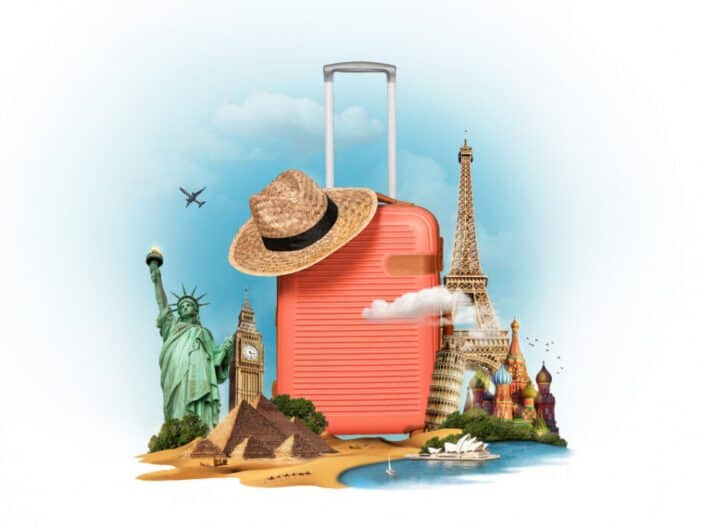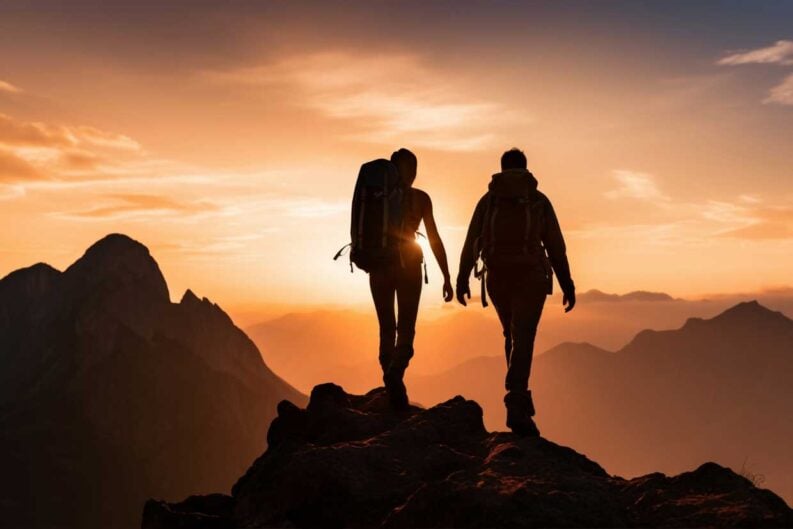Traveling to new places is an exhilarating experience that enriches our lives in myriad ways, offering the chance to explore different cultures, cuisines, and landscapes. However, visiting unfamiliar cities also poses its own set of challenges and risks. From dealing with language barriers to navigating public transport, travelers must develop a unique set of survival skills to ensure a fulfilling and safe experience.
This blog post aims to provide you with a comprehensive guide to urban survival skills that will make you not only a seasoned traveler but also a savvy urban explorer.
1. Develop Basic First-Aid And Self-Defense Skills
No matter how much you prepare, unexpected situations can arise. Knowing basic first-aid can make a critical difference in emergencies, not just for yourself but also for others around you. Learn how to treat minor wounds, recognize signs of heat stroke or hypothermia, and perform CPR. Carrying a small first-aid kit with essentials like band-aids, antiseptic wipes, and pain relievers is always a good idea.
Self-defense skills are equally important. While we hope never to use them, knowing how to protect yourself with tools like a non lethal rifle or pepper spray can provide peace of mind and could be invaluable in a dangerous situation.
In addition, many online tutorials teach basic self-defense techniques, but taking a course is the most effective way to become proficient. Self-defense also isn’t solely about physical combat; it’s about being aware of your surroundings and knowing how to deescalate situations verbally.
Once you have this information, equip yourself with the necessary gear, such as a good pair of walking shoes, a portable charger, and perhaps even a
2. Master The Public Transport System
Understanding a city’s public transport is crucial for getting around safely and efficiently. Familiarize yourself with subway maps, bus routes, and ticketing systems. Learning the basics, like how to purchase a ticket or how to read a timetable, can go a long way in making your travels smoother.
Also, be aware of rush hours and unsafe zones within the transport system. Always keep an eye on your belongings, as pickpocketing can be an issue, especially in crowded areas.
3. Blend In And Observe
The less you stand out, the less likely you are to attract unnecessary attention. Dress appropriately for the location, keeping in mind any local customs or taboos.
Keep a low profile while observing the behavior and body language of local people. Being observant will not only enhance your understanding of the local culture but also help you recognize potentially dangerous situations or scam attempts.
4. Keep Emergency Numbers And Offline Maps Handy
Always have a list of emergency contact numbers saved in your phone and written down on a piece of paper in your wallet. This list should include local emergency services, your country’s embassy, and any other relevant helpline numbers.
Having an offline map can be a lifesaver in situations where you lose internet connectivity. Download maps of the area you’re visiting and familiarize yourself with local landmarks to help with orientation.
5. Trust Your Instincts
Your gut feeling is a powerful tool for assessing situations. If something feels off, it probably is.
Whether you’re walking down a street, entering a cab, or interacting with a stranger, if your instincts are sounding alarms, listen to them. Your subconscious picks up on cues that your conscious mind may not immediately recognize, serving as an invaluable protective mechanism.
6. Establish Safe Zones And Exit Strategies
One often overlooked aspect of navigating unfamiliar cities is having predetermined ‘safe zones’ and exit strategies. A safe zone could be a well-known landmark, a busy public area, or a specific shop or cafe where you can seek refuge in case of an emergency. Knowing the location of these safe zones can offer you a place to regroup, access Wi-Fi, or contact emergency services.
Additionally, always have an exit strategy when exploring new areas. Before venturing into a less familiar part of the city, plan how you’ll get back to your accommodation or another safe location. Whether it’s knowing which metro line will take you back, having a reliable taxi service saved in your phone, or even keeping enough cash on hand for an emergency ride, an exit strategy gives you the comfort and assurance to explore with confidence.
In Conclusion
Traveling to new and unfamiliar cities is a grand adventure, offering unparalleled opportunities to expand one’s horizons. However, the unknown can also bring risks that can turn an exciting journey into a troubling ordeal.
Being prepared with first-aid and self-defense knowledge, a grasp of the local transport system, appropriate attire to blend in, a list of emergency contacts and offline maps, instinctual awareness, and well-thought-out safe zones and exit strategies will significantly improve your safety and peace of mind during your travels. Your adventures should be memorable for their excitement and cultural enrichment, not for the challenges you faced due to lack of preparation. Equipping yourself with these urban survival skills can make all the difference. Here’s to safe and enriching travels!















